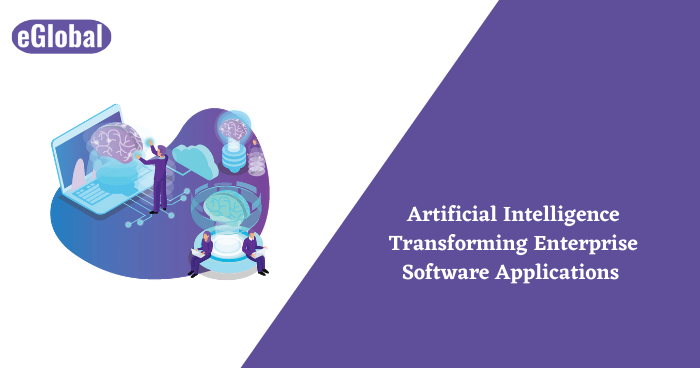

Businesses are planning to modernize their systems due to the rapid emergence of Artificial Intelligence (AI) these days. For sure, artificial intelligence can solve a few hierarchical issues as it offers functionalities that people can’t perform at a similar rate and precision.
Just a few years ago, AI changed its status from an ‘experiment’ to ‘innovation.’ By 2025, most businesses have planned for AI-empowered applications to acquire a strategic advantage from streamlining operations, a more staggering product revolution, and further developed consumer satisfaction. Users of this shift include an unparalleled growth of enterprise data, advances in machine learning (ML), and other proficiencies needed to accelerate the transformation journey.
1. Introducing AI into Data Analysis—while data analysis is critical, it can be extremely time-consuming to filter through multiple dashboards of businesses and reports to search for relevant data. To overcome such restrictions, AI-empowered virtual assistants are incorporated into business intelligence software.
2. Securing aspects of the enterprise—with the rise of remote working practices throughout the world, enterprises cannot risk the threat of cyber-attacks. To battle the threat and secure every aspect of enterprises, associations are pushing to deploy applications that use AI and machine learning to detect threats in real-time. These types of tools detect anomalies in network traffic, mails, and every activity.
3. Transforming through AIOps– AIOps, and arising variation of DevOps, uses machine learning (ML) calculations on IT usable data to infer experiences that optimize and further improve operations.
4. While DevOps simplifies IT tasks, AIOps goes above and beyond by extracting data that is valuable in managing IT exercises.
5. Optimizing supply chain management— Various enterprises are investing in AI-powered supply chain management applications. They improve in-time deliveries, predict potential issues and help in reducing costs. By enforcing AI-powered analytics, businesses can produce valuable forecasts to build a resilient supply chain. Some of these benefits include – demand forecasting, stock outlook, and detecting out-of-stock circumstances.
6. Simplifying Billing through AI—AI is highly capable of making simpler the financial operations inside the enterprise. Shifting ahead from traditional optical character recognition, an AI-empowered invoice management system can extract any detail from any document. For example—by just setting up the software with invoices from different vendors, AI can figure out the source of the invoice, amount to be paid, due dates, etc., without human help.
7. Integrating with CRM—the benefits of integrating AI into customer relationship management systems are diverse. AI-enabled chatbots can increase CRM rates by enabling users to search information faster, sending personalized updates automatically. It can also help automate and simplify the data entry process, which can be further explained below.
8. Intranet smarter with AI—AI can help to transform your digital workspace into a much smarter and intelligent framework – right from colonial administration to employee communication and social networking.
9. Cognitive enterprise research—is an AI-empowered smart search tool that links all the internal and external enterprise systems, therefore acting as a one-stop enterprise search engine. It interprets natural language phrases and shows personalized results based on the user’s interest, location, needs, and past activities.
Check: Why Artificial Intelligence Matters For Technology Development?
Recent surveys predict that by 2021, 40% of new enterprise software implemented will be AI-empowered. AI is promising to solve problems enterprises could never before because it can deliver leverages that no human can legitimately deliver in the span.
The industry that is the most enthusiastic about AI implementation is financial, healthcare and tech services. CDOs (chief data officers) in the industry that have to deal with a large amount of data in the form of financial transactions that must be analyzed for fraudulent practices. AI has been a big support in such services in almost every industry today.
Artificial intelligence is and will continue to play a huge part in renovating enterprise applications. One can’t deny the fundamental role of AI-empowered applications in driving enhancements in quality, speed, and effectiveness within associations. While it may be overpowering for organizations to change their operations and systems quickly, starting the AI venture with low-hanging fruits can be a decent beginning.

© 2017 All rights reserved.